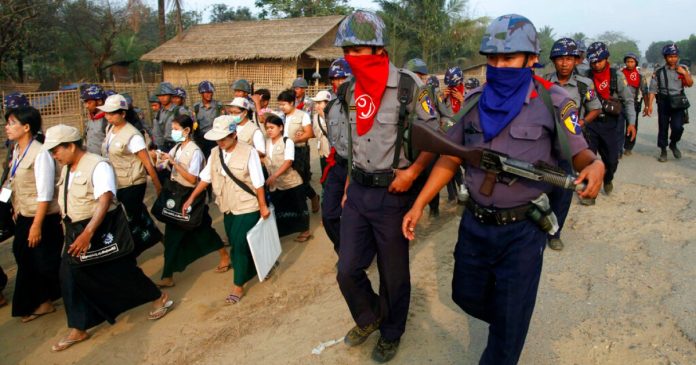Myanmar’s 2024 census was perhaps the most contentious and deadly one ever conducted.
Enumerators and their heavily armed guards from Myanmar’s military faced repeated attacks from opposition groups as they struggled to document the population between October and December of last year.
An incident in early October resulted in the death of seven soldiers providing security for census takers in Mandalay Region due to an explosive device. Shortly after, three more soldiers were killed in a rocket attack in Kayin State in the east of the country.
Richard Horsey, Myanmar adviser to the International Crisis Group, described the census as an absolute failure, although the regime claimed it as a success.
The census in Myanmar was met with violent resistance, signifying its importance in the country’s democratic journey.
Preliminary results released in January by Myanmar’s Ministry of Immigration and Population indicated that the census demonstrated the military government’s dedication to national reconciliation and was a precursor to a national election.
The opposition views the upcoming election as a way for the military to gain legitimacy, while the military sees it as a step towards stability.
However, the actual census data is believed to be unreliable, with significant areas left uncounted, especially in regions controlled by democratic resistance groups or revolutionary forces.
The military extended the state of emergency to July 31, citing the need for stability and peace before the election.
Despite challenges, national polls are expected to take place this year, with pressure mounting on Min Aung Hlaing, the military’s leader.
A crisis of unprecedented proportions unfolded in Myanmar, with the military’s control diminishing and resistance forces gaining ground, leading to the possibility of regime change.
The military’s plan to hold a national election has faced criticism and resistance, with many viewing it as an attempt to erase the NLD’s previous victory.
The process is expected to be violent and dangerous, with polling stations likely to be targeted.
Resistance groups have warned civilians against collaborating with the military regime, indicating possible repercussions for those supporting the election process.
Despite the uncertainty surrounding the upcoming elections, it symbolizes a final attempt by the struggling military regime to cling to power.
Amidst this tense situation, the prediction remains that the military regime in Myanmar will eventually collapse, marking the end of an era.
Additional reporting by Hein Thar.






